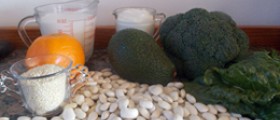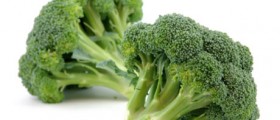
Calcium is a chemical element and one of the most important nutrients for humans. It is the fifth most abundant element by mass in the Earth's crust, and the most abundant metal by mass in many animals. It is an important component of a healthy diet, and necessary for many vital functions. It is involved in building strong and dense bones, in early life, but also necessary throughout the life to keep the bones strong and healthy. About 99% of all calcium in the body is stored in the bones and teeth but it also supports many other important vital functions: neurotransmitter release and muscle contractions, for example.
Recommended daily dose of calcium
Calcium is necessary in healthy diet but its excessive intake may result in elevated values of blood calcium levels, which is known as hypercalcemia. More than 3000 mg of calcium per day can be toxic. Too much calcium in blood can even lead to soft tissue calcification and unwanted calcium accumulation in cells other than bone. The exact recommended daily dose of calcium depends on the age and health status of a person.
Children of up to six months need 1000 mg of calcium daily. Children aged 6-12 months require 1500 mg of calcium in their diet. From age 1 to 8 years, children need 2500 mg of calcium, while older children and teenagers (from 9 to 18 years) need 3000 mg daily. Daily needs for calcium are a bit lower in adult and elderly population. Between the ages of 19 and 50, both males and females need 2500 mg of calcium. People older than 51 need 2000mg, while pregnant and lactating women have to increase their daily intake and consume 2500 – 3000 mg of calcium every day.
Calcium based foods
Calcium is best obtained from foods. The amount and quality of dietary calcium is not impacted by cooking or long-term storage. However, an adequate intake of vitamin D is required for proper absorption and utilization of calcium. Some of the best dietary sources of calcium include mustard greens, collard greens, turnip greens and spinach.
However, dairy products are well known as excellent sources of calcium. It is found in large amounts in yogurt, mozzarella cheese, goat’s milk and cow’s milk. Other very good sources include blackstrap molasses, Swiss chard, kale, basil, thyme, dill seed, cinnamon, and peppermint.
Significant amounts of this nutrient are also found in tofu, garlic, sesame seeds, romaine lettuce, celery, rosemary, funnel and summer squash.

















Your thoughts on this
Loading...